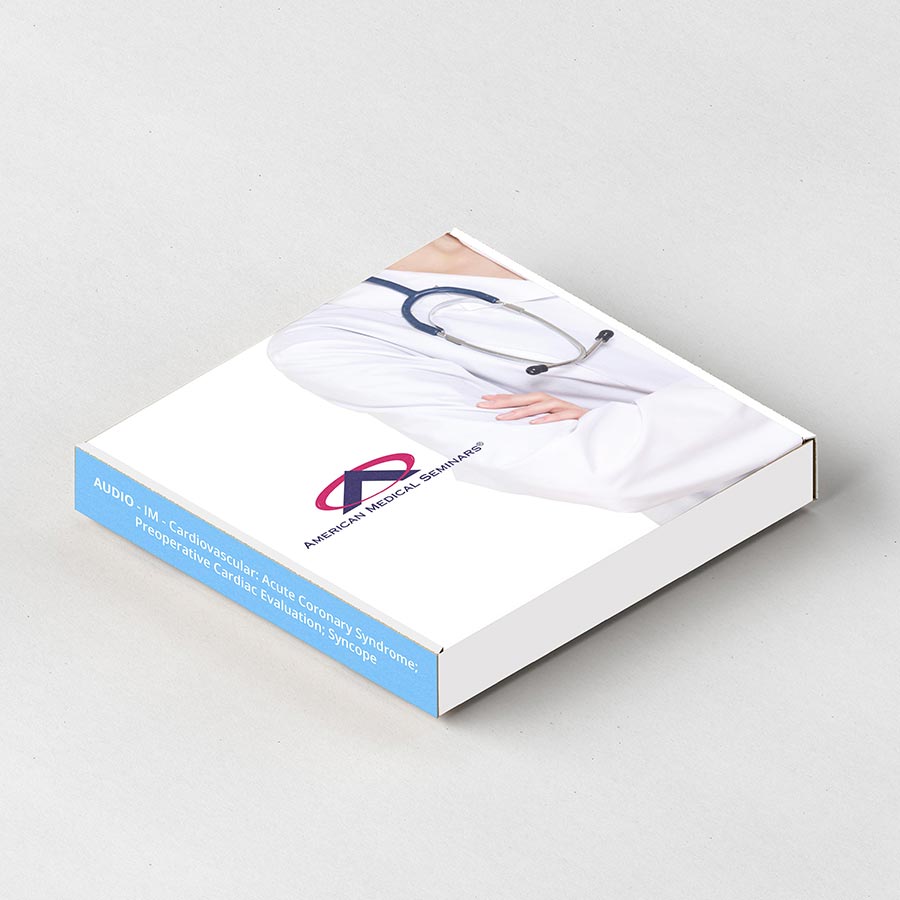Product Description
Expiration Date: July 1, 2019
Title: Internal Medicine – Cardiovascular: Acute Coronary Syndrome; Preoperative Cardiac Evaluation; Syncope
Faculty: Michael P. Goldfinger, M.D., F.A.C.P.; Gregary D. Marhefka, M.D., F.A.C.C., F.A.C.P.; and Gerald W. Smetana, M.D.
Original Release Date: July 1, 2016 Review Date: July 1, 2017 Expiration Date: July 1, 2019
TOPIC 1: Acute Coronary Syndrome.
Upon completion of this session, the participant should be able to: COMP
- Recognize appropriate indications for antiplatelet agents, including the novel oral agents.
- Recognize appropriate indications for anticoagulants.
- Determine the indications and appropriate timing of coronary artery angiography.
- Relate the differences between bare metal stents, drug eluting stents, restenosis and stent thrombosis.
TOPIC 2: Preoperative Cardiac Evaluation.
Upon completion of this session, the participant should be able to: GL, COMP
- Develop risk stratification for perioperative cardiac risk.
- Demonstrate knowledge of preoperative cardiac risk guidelines and the revised cardiac risk index.
- Properly use beta-blockers and statins for patients at risk for perioperative cardiac complications.
TOPIC 3: Evaluation of the Patient with Syncope.
Upon completion of this session, the participant should be able to: GL, COMP
- Appraise the various etiologies of syncope.
- Use clues in the history and physical as well as simple office testing to risk stratify patients with syncope.
- Develop a plan for appropriate use of additional testing in patients with syncope to include indications for EP testing as per the AHA Syncope Algorithm and the ESC Guidelines.
- Assess the role of lifestyle measures, medication, and more invasive measures to prevent recurrent syncope.
- The receipt for any incentive-associated purchase will designate the value of the gift card separately from the cost of the learning activity.
- This incentive may have implications on your tax reporting obligations. Any reimbursed amount must be declared as personal income for tax purposes.


